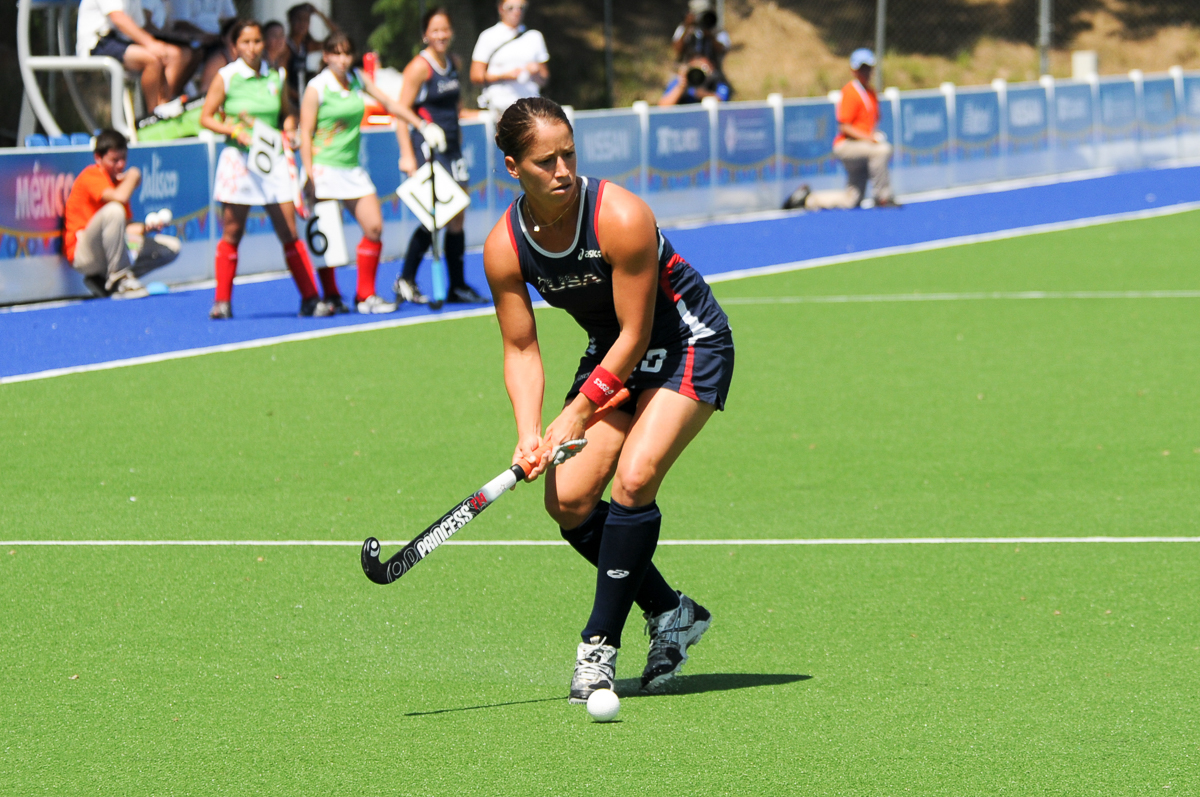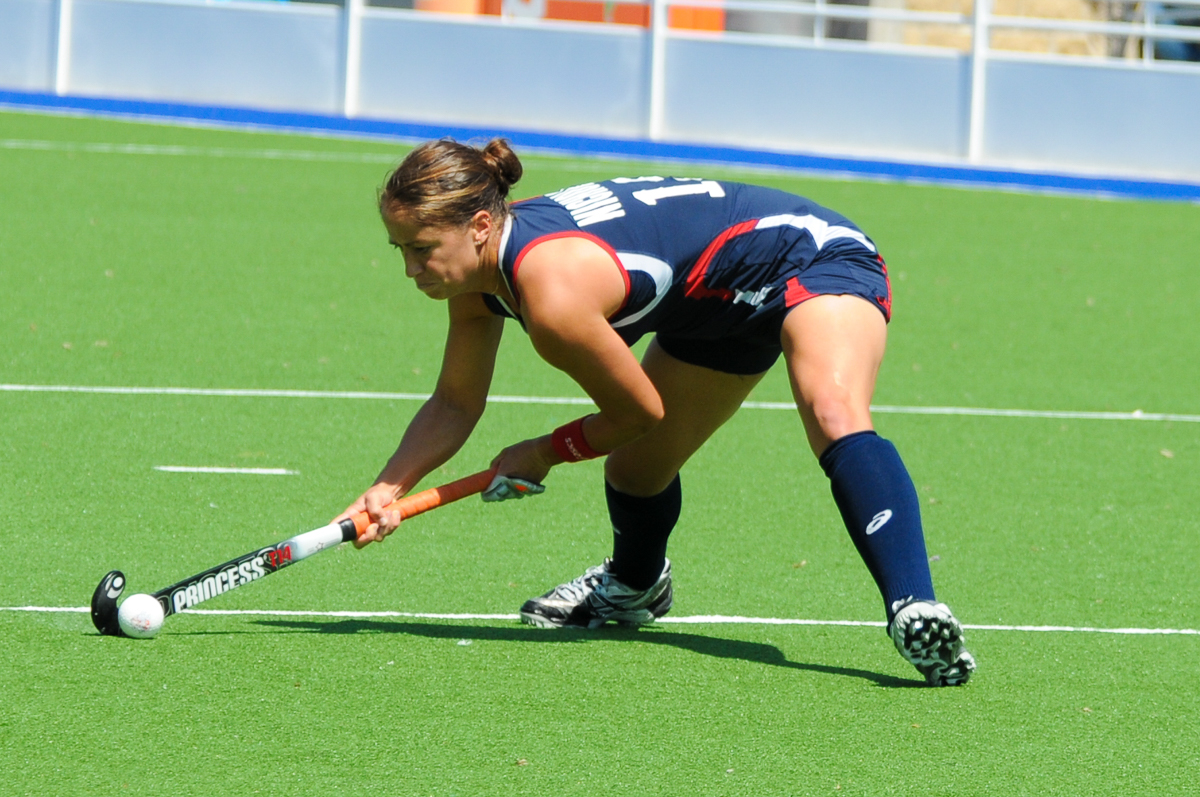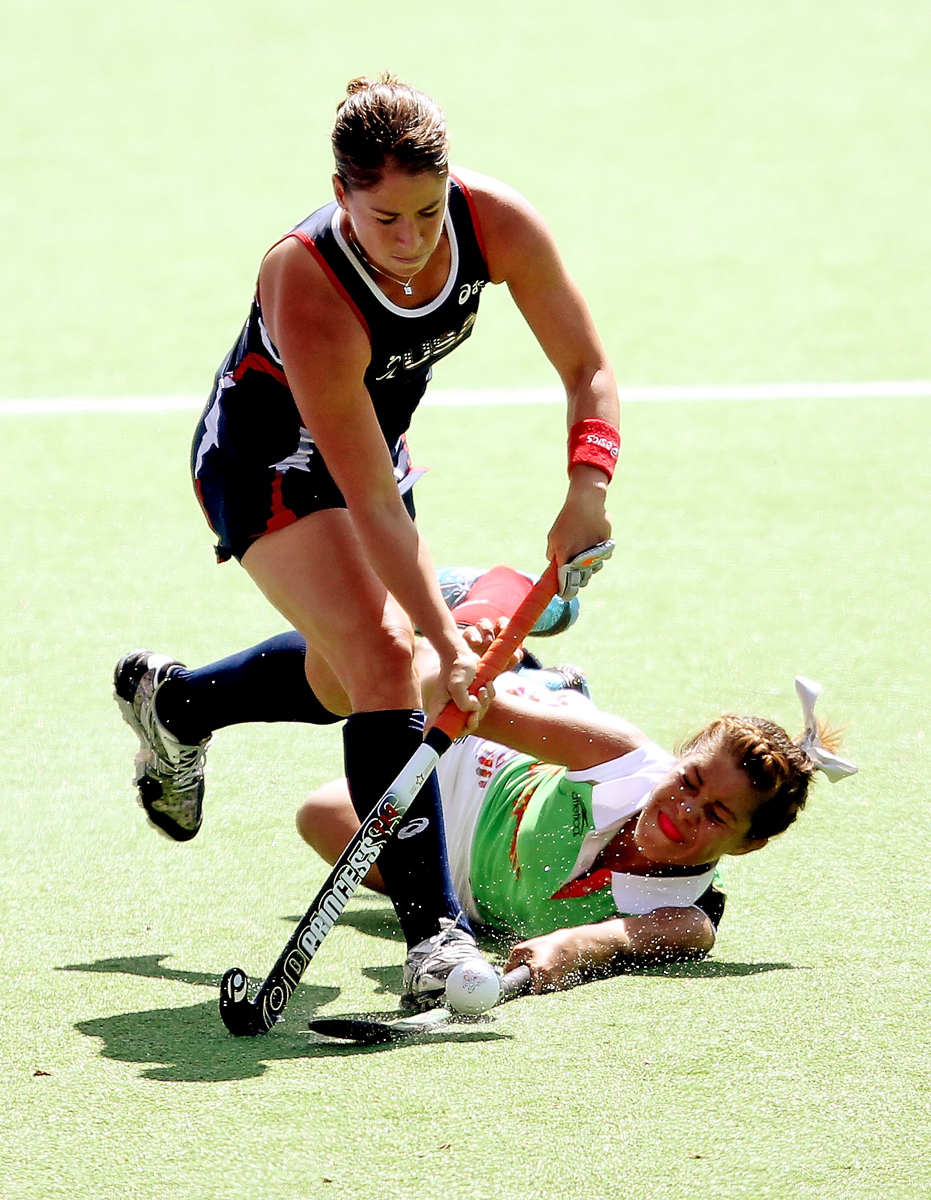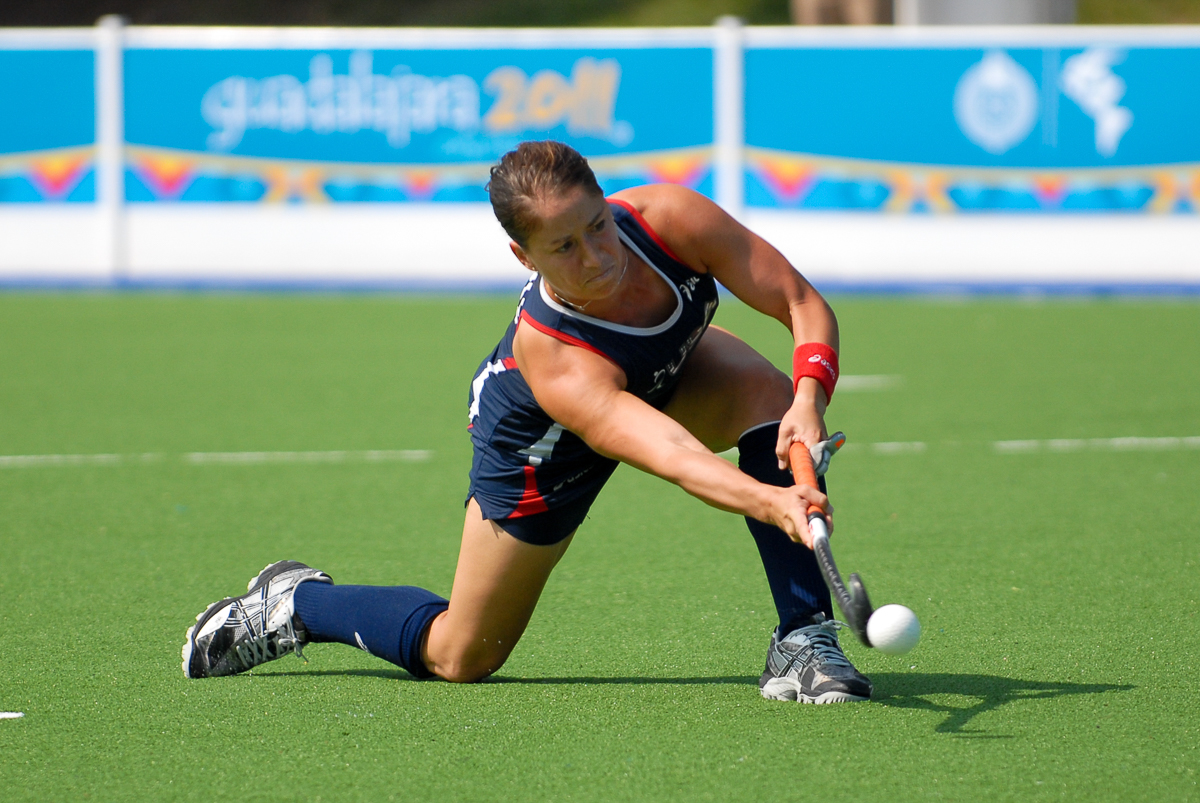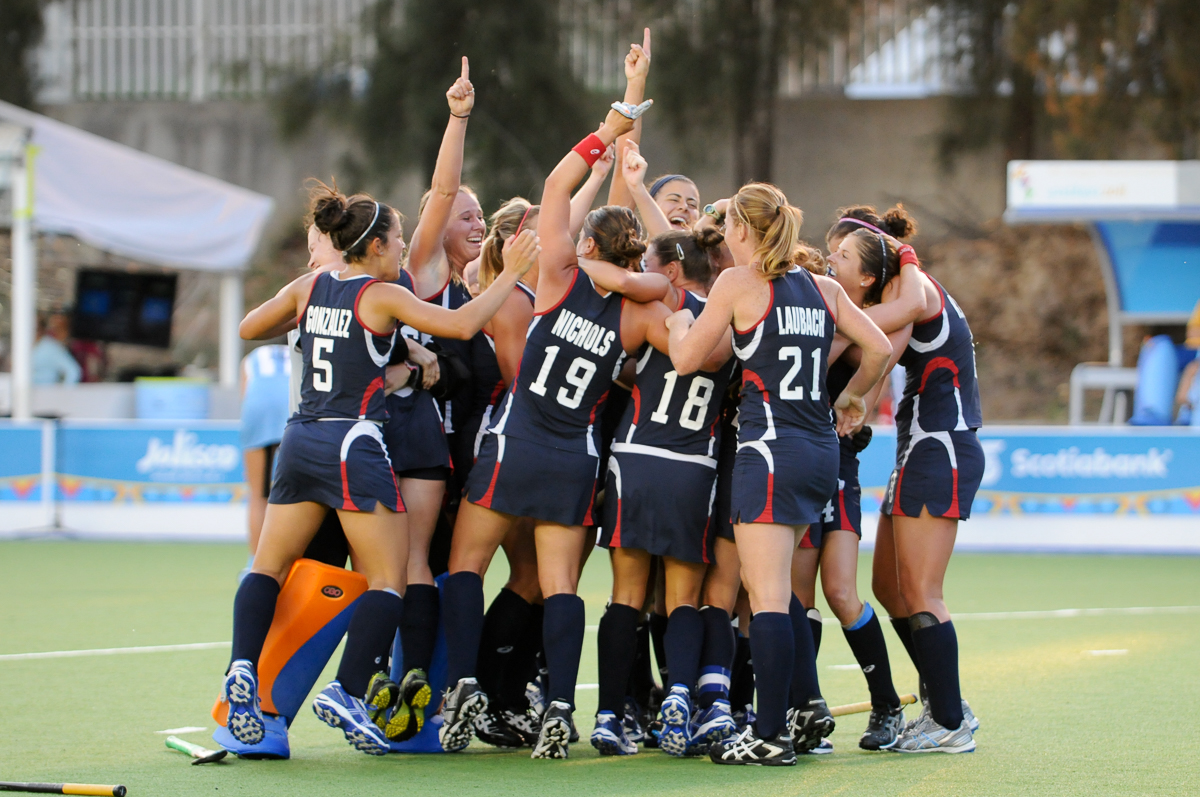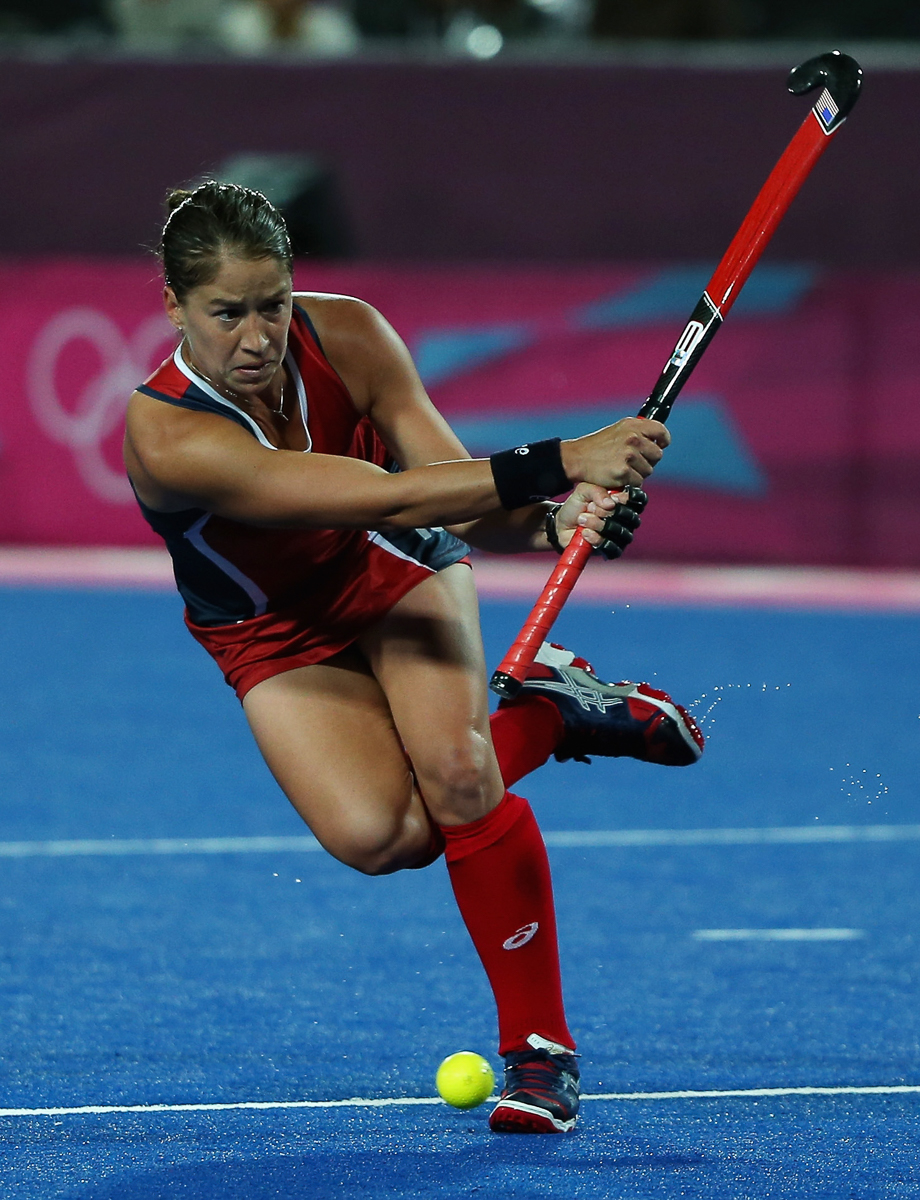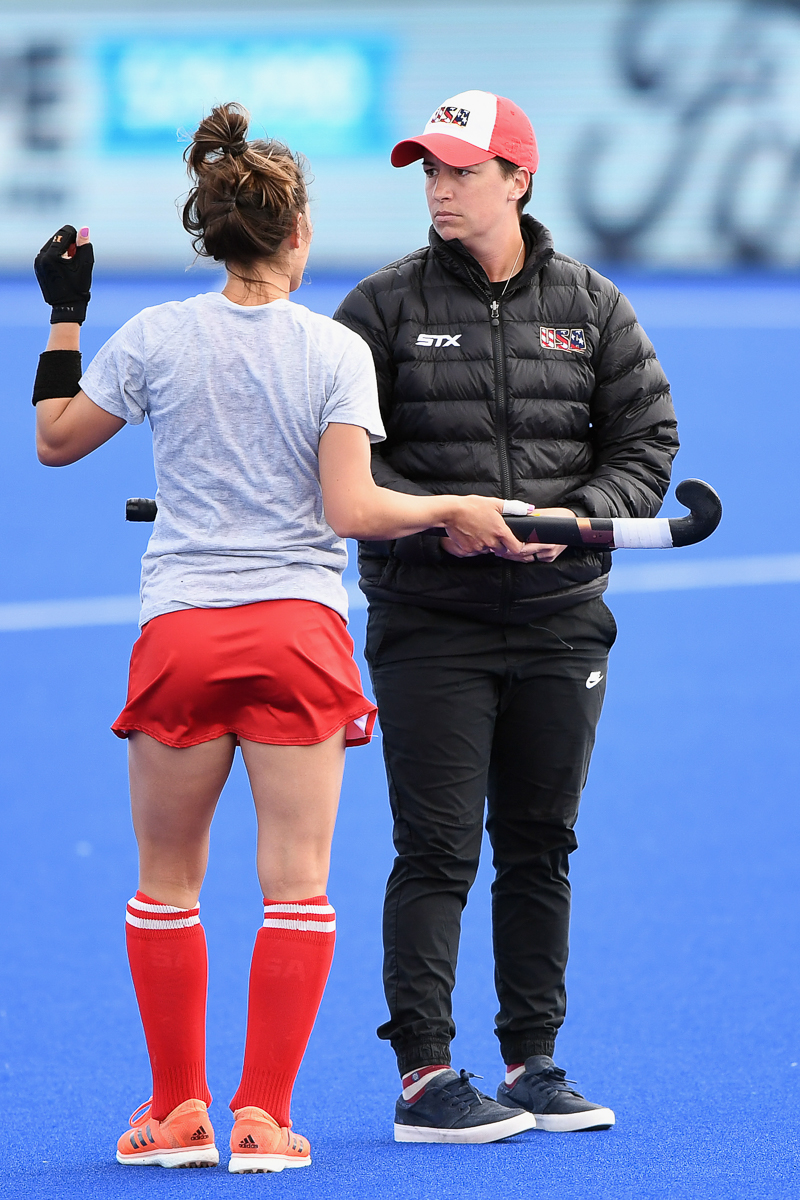a2.jpg)
In this interview, we meet a woman who knows both sides of the white line. Caroline Nelson-Nichols played for the USA national team from 2008 until 2014, during which time she won 165 caps for her country, including a gold medal at the 2011 Pan American Games, and was a lynchpin of the defence throughout her international career.
Now she has stepped into the role of Head Coach to the USA national team, and is seeking to return the team to the same glory days that saw them rise up the rankings and astonish the world with their athleticism and skills at the 2014 Hockey World Cup in the Netherlands.
For Nelson-Nichols, the 2014 World Cup in the Hague, and the months of preparations leading up to it, were pivotal times for the USA national team. Craig Parnham, previously assistant coach to Great Britain and England, had taken over as head coach to the US team and was introducing some new thinking into the squad. His ideas proved intriguing enough to lure Nelson-Nichols back from her self-imposed retreat from the national squad, following a disappointing London 2012 Olympic Games, where the team had high hopes but finished 12th.
“I rejoined the programme a while after Craig had arrived,” says Nelson-Nichols. “His ideas drew me back in. He asked us to take a good hard look at ourselves and identify who we were. Then he helped us reshape and redefine that. It took a lot of hard work and there were a lot of difficult conversations during which he really challenged us. That process really helped us to put culture first and figure out who we wanted to be. That was the catalyst to the success we found at the World Cup in 2014.”
Prior to their World Cup appearance, where they finished fourth after storming to victories over higher ranked teams England, China and Germany, the USA had also won the 2014 Champions Challenge in some style. Nelson-Nichols says the team arrived in the Netherlands with no expectations of winning, but with a definite belief in what they were doing as a team.
For Nelson-Nichols personally, the months she had spent practising her penalty corner deliveries were rewarded when the first penalty corner of their opening World Cup match against England flew into the goal. Fist-pumping celebrations followed. When the second goal also screeched home, Nelson-Nichols says: “We had to pinch ourselves. We were 2-0 up against England, a strong team that we massively respected. I think we were all just saying to ourselves, ‘is this for real?”
As a foot-note to Parnham’s coaching methods during this time, the players all received letters as they were waiting for the competition to begin. “In each letter, our families had written how proud they were and wished us good luck. It was just a cool connection back to our families at a moment when we were in the middle of a major tournament.”
Nelson-Nichols made the move back into coaching shortly after the World Cup. She was accepted onto a college course and combined this with a coaching role. This was no a surprise move as Nelson-Nichols had spent the time between 2012 and 2014 developing a coaching career, but now she had the World Cup experience and the input of a medal-winning coach to draw upon [Parnham had been part of Great Britain’s bronze medal campaign in 2012].
“Our mantra as athletes was to be ‘united’,” says Nelson-Nichols, revealing that all the athletes had the word written on their lockers. “It created a very strong bond between us. There was something about how we interacted as teammates. A big lesson for me to learn as a coach is how do you recreate that for your athletes as you move forwards?
It is a question that Nelson-Nichols didn’t have long to ponder. Just six years after stepping away from the national squad as a player, she was invited back to be the national coach. A move that has still left her, “with my head spinning.”
The total lack of arrogance and a winning acceptance of her fallibilities make Nelson-Nichols an approachable person. She says that she has “made mistakes every day since she joined the national program as head coach, but she has learnt from each one.”
Her motivation to take on the top job is pure and simple and has remained true throughout her coaching career: she wants to inspire and impact young players, whether that is a youngster coming into the sport with aspirations to be an elite athlete or simply encouraging someone to get involved in sport.
When it comes to her targets for the national squad however, the aim is specific and measurable. “I want to get us back to the top of the world rankings.”
Not that Nelson-Nichols is looking to recreate the 2014 squad. She is no Parnham Mark Two, but very much her own person. She believes that the most important quality in a coach is authenticity, but also believes that you can take pieces of valuable coaching advice and knowledge from all sorts of influences and add them to your own coaching style.
“Every coach picks up pieces along the journey: things you want to do, things you want to avoid. Craig had a strong influence and a lot of things he did really stood out for me but it is important as a coach to be yourself and stay authentic.
“There are moments when you ask yourself, ‘Well what would this coach do in this situation?’ But I strongly think you need to rephrase that. It should be ‘what would I do in this situation, taking into account all the lessons I have learnt to date?”
Like Parnham, Nelson-Nichols believes in empowering the players and allowing them to ‘write their own story’. This can get ‘messy’, she says with a chuckle, in the early stages of learning.
“The way I operate is to start with the end in mind. Where do I want to take the programme? I then work backwards from there. It is important to go through all the steps and not skip them. Even if it is looking messy, you still have to go through those steps because messy moments are often where real learning happens.
“Culture is something we are looking to attack as a squad right now. We didn’t qualify for the Tokyo Olympics so that has changed the landscape a little. We have to redefine what our USA mode of play is. We are exploring that right now. We are asking some tough questions and it can be hard, but it is necessary to rebuild our foundations. I look at it like a sandcastle – if you just use soft sand it will quickly disintegrate. If you add water and build strong foundations, then you can build a really good, strong sandcastle.”
Like the other top flight female national coach Alyson Annan of the Netherlands, Nelson-Nichols is an elite player who has transitioned into coaching. She says that doesn’t mean she has all the answers. “The lessons I learnt as an athlete are incredibly important to how I perform as a coach. I know what it is like to be in those pressure situations so I can help prepare my athletes for that. I know what is like to walk into a tournament feeling totally prepared and also what is is like to feel massively underprepared.
“I know what it is like to be in a team that is playing in a medal round. But I don’t know what it is like to be on team that has won a medal in a major tournament – that is where I pull on my support system.”
For Nelson-Nichols, it is a constant search for improvement, both in her players and for herself as the coach. She has invested time into her own coach education since deciding that this was the path for her. She also says she has changed and evolved “massively”, actively seeking out ways to improve what she does.
“I have made a tonne of mistakes since joining this program,” she says, “but I have done a lot of good things too. I am growing all the time.
Under Nelson-Nichols, the USA team have had a challenging start to 2020. As one of the nine women’s teams contesting the FIH Pro League, their first opponent was with the world number one side, the Netherlands – a match they lost 9-0. That was followed by an encounter with PAHF rivals Argentina, where they suffered a 6-2 and 6-1 pair of defeats. But for Nelson-Nichols this was just the sort of challenge that her young charges needed.
“The FIH Pro League is a good pulse check. You play teams that are ranked in the top three and you quickly learn where your holes are. That is a big takeaway. We are now crafting how we want to play and the Pro League has allowed us to take a microscopic look at that. And we can constantly measure where we are in the world.”
Since then, the squad, along with the rest of the world has been in a Covid-19 lockdown. While difficult in so many ways, it has at least given players and coaches a chance to take stock of where they are, recover from injuries and work on their own strength and conditioning, says Nelson-Nichols.
Despite the short time that the former defender has had with the squad, there is already a sense that she is just what this talented group of players need to rediscover their culture and form. She encourages collaboration between athletes and coaching staff. She accepts that mistakes will be made and she accepts that she personally may occasionally feel out of her depth. But, at the end of this interview she conjoured up a vision that suggests that this is all going to turn out all right: “We were in a training camp after the first set of Pro League matches and there was so much learning happening. It was sometimes just very messy. But then, it sort of was like the clouds parted and the beam of sun shone through immersing everyone in this glow of heat. You saw the understanding, you saw the principles we had been talking about come to life. That was a really cool moment.”
